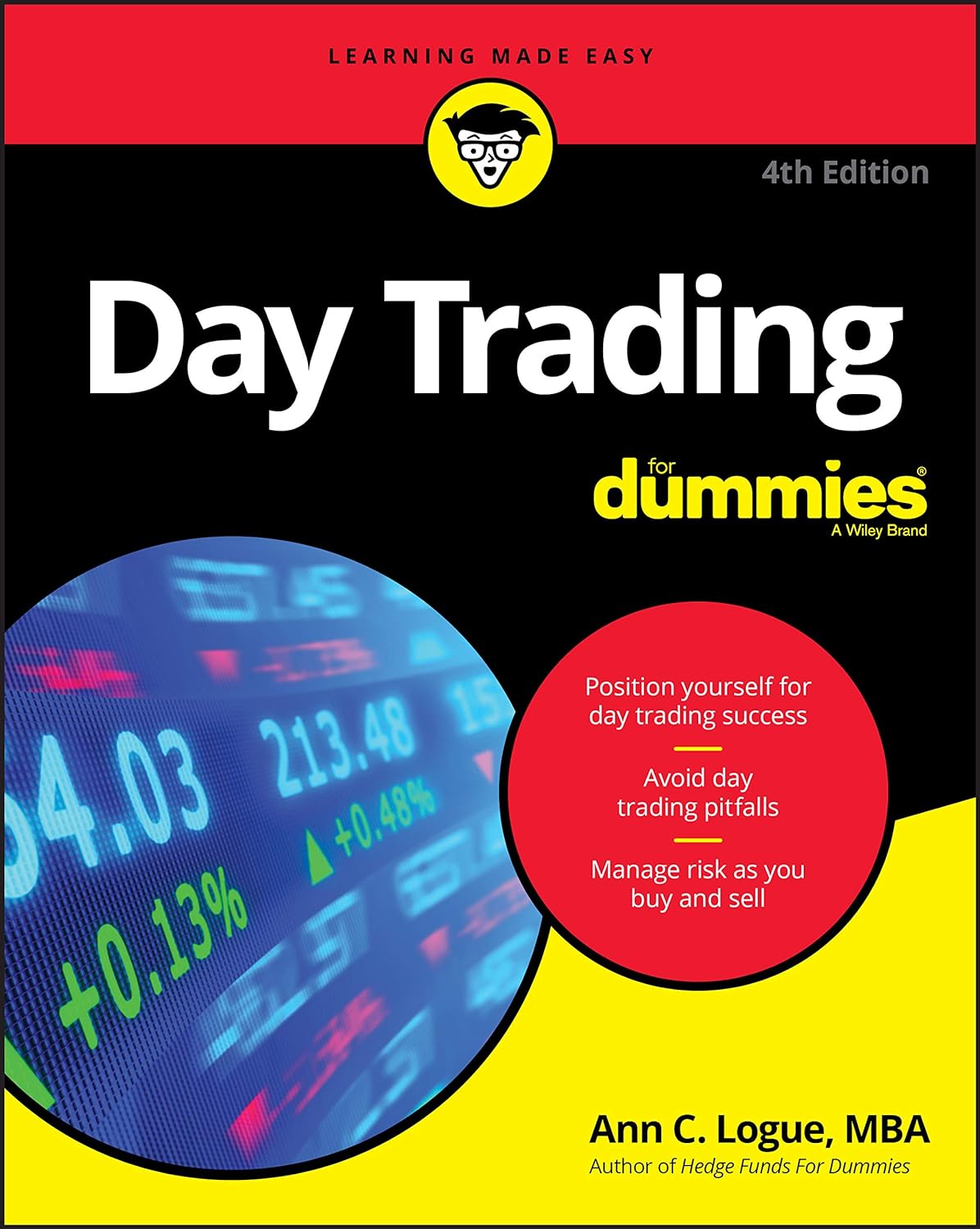Introduction
Day trading is the fast-paced world of buying and selling securities within the same trading day. Traders who engage in this method, known as day traders, utilize a variety of strategies to take advantage of short-term price movements in the stock market. Successful day trading requires a deep understanding of market trends and the ability to react quickly to fluctuations. In this demanding financial activity, traders may frequently lose money or achieve substantial gains, largely depending on their skills and the strategies they employ, such as technical analysis and trading based on market news.
To start day trading, one must be well-prepared with a solid foundation in market knowledge and have access to reliable trading platforms. It’s essential to understand the risks involved in trading securities within the same day, as this approach can lead to significant financial losses if not managed properly. Day traders often rely on technical analysis to make informed decisions and must be aware of trading hours and the necessary amount of capital to effectively manage their trades. This form of trading is not without its challenges, but for those who master it, day trading can be a lucrative way to capitalize on the stock market’s volatility.
Key Takeaway
- Day trading requires mastery in quickly capitalizing on short-term price movements using various strategies, heavily reliant on technical analysis.
- Essential tools such as reliable trading platforms, brokers, and charting software are critical to execute trades efficiently and analyze market data effectively.
- A deep understanding of market dynamics and the ability to anticipate and react swiftly to changes are fundamental to successful day trading.
- Day traders must manage significant financial risks and maintain discipline to mitigate potential losses during rapid market changes.
- Regulatory knowledge is crucial for day traders, as compliance with trading laws and regulations can significantly impact trading activities.
- Advanced trading techniques and behavioral insights can enhance a trader’s ability to make informed decisions and sustain long-term success in day trading.
Understanding Day Trading: Essential Concepts and Strategies

Day trading is the active trading of securities within the same day where day traders use real-time data and technical analysis to capitalize on price movements. This strategy, often driven by market volatility, requires rapid responses and a deep understanding of market dynamics. Day traders may often rely on brokers for day trading and are keen on trading patterns and trends to inform their decisions. While day trading on margin can enhance profits, it increases the risks of day trading, with some traders experiencing losses. Successful traders have proven strategies to attempt to profit from short-lived opportunities within regular trading hours.
Essential Day Trading Strategies and Considerations
| Strategy | Key Characteristics | Associated Risks |
|---|---|---|
| Momentum Trading | Involves buying stocks moving up in price and selling as they peak. | High risk of rapid losses due to sudden market reversals. |
| Swing Trading | Focuses on profiting from price ‘swings’ in the market. | Requires precise timing, risking missed opportunities. |
| Technical Analysis | Uses statistical trends to forecast future price movements. | Dependent on accurate data, vulnerable to anomalies. |
| Trading on Margin | Trading with borrowed funds to increase potential returns. | Increases potential losses, leading to debt. |
This table summarizes common strategies used by day traders, highlighting key characteristics and associated risks, aiding in understanding how these strategies relate to day trading principles.
Core Principles of Day Trading
In day trading, the fundamental principles revolve around the ability to anticipate and react to market movements swiftly. Volatility and momentum are key aspects that day traders exploit to generate profits. By understanding these dynamics, traders can identify potential entry and exit points within the trading day, which is crucial for capitalizing on short-lived trading opportunities. Effective day trading also involves a disciplined approach to manage risks, as the rapid pace of trading can lead to significant losses just as quickly as gains. This section discusses the importance of mastering these core principles and how they form the basis of effective day trading strategies.
Choosing the Right Day Trading Strategies
Choosing the appropriate trading strategy is vital for any trader’s success. Day trading strategies vary widely, but they typically involve a detailed analysis of the stock’s recent behavior and an informed prediction of its future performance. Strategies such as momentum trading, where traders look for stocks moving significantly in one direction on high volume, and swing trading, which focuses on profiting from short-term price patterns, are popular among day traders. Technical analysis is a cornerstone method, utilizing statistical trends from trading activity, such as price movement and volume, to forecast future price trends. Successful strategies are usually well-researched and continuously tested against historical data to verify their effectiveness.
The Tools of the Trade: What You Need for Successful Day Trading

Successful day trading demands more than just an understanding of market movements; it requires the right tools. Tools such as sophisticated trading platforms, reliable brokers, and advanced charting software are essential. A robust trading platform provides real-time data and the ability to execute trades swiftly, which is crucial in a market where seconds can mean significant financial differences. Selecting a reputable broker is equally important, as they facilitate the trades and can offer valuable tools and advice. Additionally, charting software aids traders in analyzing market trends, helping them make informed decisions based on technical analysis of stock movements and historical data.
Essential Tools for Successful Day Trading
-
Advanced Trading Platforms: Crucial for providing real-time data, these platforms enable swift execution of trades and are equipped with automated trading options, enhancing reaction speed during volatile market periods.
-
Reliable Brokerage Services: A reputable broker not only facilitates efficient trade execution but also offers access to essential trading resources and expert advice, which are indispensable for making informed trading decisions.
-
Sophisticated Charting Software: Vital for technical analysis, this software helps traders identify trends and patterns in price movements, utilizing tools like candlestick charts, MACD, and RSI.
-
Economic Calendars and News Feeds: Staying updated with real-time market news and economic events is critical as it directly influences trading decisions and strategy adjustments.
-
Risk Management Tools: Features like stop-loss orders and margin calculators are essential to manage and mitigate risks associated with day trading, protecting against significant losses.
Essential Tools for Every Day Trader
Every day trader needs a set of basic tools to participate effectively in the market. Key among these are a reliable brokerage account, robust charting software, and access to up-to-date market data. A good broker not only executes trades efficiently but also provides educational resources and trading advice. Charting software is indispensable for conducting technical analysis, allowing traders to visualize market trends and identify trading opportunities. Furthermore, staying updated with real-time market news and data is crucial, as it influences trading decisions and strategy adjustments throughout the trading day. This paragraph discusses the fundamental tools that support the operational needs of day trading.
How Technical Analysis Influences Day Trading
Technical analysis plays a pivotal role in day trading, helping traders predict future market movements based on past trends. This method involves studying price movements and trading volumes to identify patterns that can suggest future activity. Successful day traders often rely heavily on technical analysis to plan their trades, using indicators like moving averages, MACD (Moving Average Convergence Divergence), and RSI (Relative Strength Index) to make informed decisions. By understanding and utilizing these tools, traders can enhance their ability to make profitable trades based on short-term market behaviors. This section emphasizes the critical importance of technical analysis in developing effective day trading strategies.
Navigating Risks and Challenges in Day Trading

Day trading can be highly profitable, but it comes with significant risks. Understanding and managing these risks is crucial for any trader looking to be successful. Common risks include rapid price movements, potential financial losses, and the volatility inherent in the stock market. Day traders must also be aware of the regulatory frameworks that govern their activities, especially the rules concerning pattern day traders, which can affect how they manage their trading accounts. Effective risk management strategies, such as setting stop-loss orders and only trading with capital they can afford to lose, are essential for minimizing potential losses while maximizing trading opportunities.
Understanding and Managing Trading Risks
Managing trading risks effectively is crucial for sustaining a successful day trading career. Traders need to be particularly vigilant about the volatility and momentum of the markets, which can drastically alter trading outcomes within minutes. It’s important for traders to have a clear risk management strategy, including the use of stop-loss orders to limit potential losses and taking advantage of paper trading to practice strategies without financial risk. Additionally, understanding the psychological pressures of trading and maintaining discipline in both winning and losing scenarios is essential to manage the emotional aspects of day trading. This section details how to navigate and mitigate common trading risks.
Regulatory Considerations for Day Traders
Day trading isn’t just about strategies and market analysis; it’s also heavily influenced by legal and regulatory requirements. Pattern day traders are subject to specific regulations, including maintaining a minimum account balance and facing restrictions on the number of trades they can make if certain conditions are not met. Awareness and compliance with these regulations are crucial for avoiding potential legal issues and ensuring the continuity of trading activities. This part also covers the importance of understanding the broader regulatory environment, including how market changes and updates to trading laws can impact day trading strategies and outcomes.
“The game of speculation is the most uniformly fascinating game in the world. But it is not a game for the stupid, the mentally lazy, the person of inferior emotional balance, or the get-rich-quick adventurer. They will die poor.” – Jesse Livermore
Advanced Techniques and Tips for Seasoned Traders

For experienced day traders looking to refine their skills, advanced techniques and insights can significantly enhance trading effectiveness. This section explores sophisticated strategies that go beyond basic trading concepts, focusing on methods like high-frequency trading, spread trading, and the use of complex chart patterns. Additionally, behavioral insights into trading psychology can provide a competitive edge, helping traders make more informed and disciplined decisions. Understanding and implementing these advanced techniques can lead to greater consistency in profitable trading outcomes and help seasoned traders navigate the complexities of the market more efficiently.
Enhancing Your Day Trading Techniques
Advanced day trading techniques involve a deeper understanding of market mechanisms and the ability to anticipate changes more swiftly. Techniques such as spread trading and high-frequency trading require not only a good grasp of fundamental trading principles but also the ability to implement complex strategies that can capitalize on minimal price differences and market inefficiencies. Furthermore, seasoned traders can benefit from integrating quantitative analysis and algorithmic trading into their strategies, which can automate trading decisions and enhance precision. This paragraph delves into how these advanced techniques can be integrated into a trader’s repertoire to maximize their market performance.
Behavioral Insights for Better Trading Decisions
Understanding the psychological aspects of trading is as crucial as mastering technical skills. Behavioral finance studies how psychological influences and cognitive biases affect trading decisions and market outcomes. For seasoned traders, being aware of emotional triggers and learning to manage them can prevent costly impulsive decisions and improve strategic thinking. Techniques like keeping a trading journal and setting clear, achievable goals can help maintain focus and discipline. This section highlights the importance of psychological resilience and emotional intelligence in achieving long-term success in day trading.
Conclusion
Day trading is a complex yet potentially rewarding endeavor that demands a keen understanding of market mechanisms and the capacity for quick decision-making. It’s crucial for day traders to employ effective trading strategies, including technical analysis and risk management, to navigate the inherent volatility of the stock market. As traders learn to execute four or more day trades efficiently, they begin to recognize patterns and opportunities that can lead to significant gains, although the risk of loss remains substantial.
The journey of day trading is fraught with challenges, particularly during the first months of trading. For those who persevere, the integration of tools like trading apps and charting software is essential. Successful day traders not only use technical analysis but also adapt to regular trading hours and maintain awareness of trading risks. Ultimately, mastering day trading requires continuous learning and adaptation, using every tool and strategy available to turn the fast-paced world of stock trading to their advantage.

James Dunnington leads the James Dunnington Collection, featuring five unique blogs: a practical Pet Care Guide, an enlightening Ancient History Blog, a resourceful Home Improvement Guide, a cutting-edge Tech Innovation Guide, and a strategic Online Money Making platform. Each site delivers valuable insights designed to empower and inform. For updates and more tips, visit our Contact Us page to sign up for our newsletter, ensuring you never miss out on the latest content from any of these dynamic fields.

